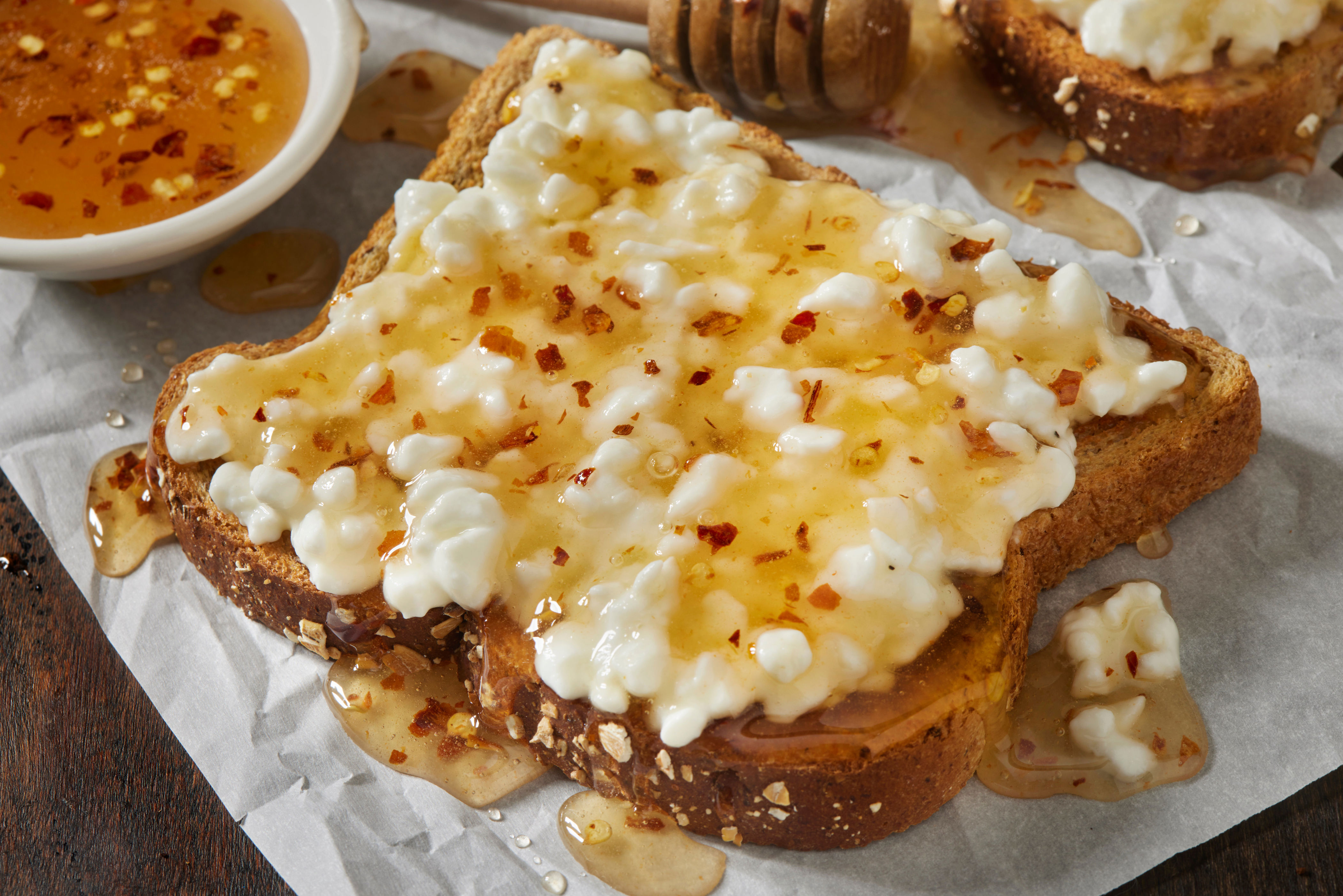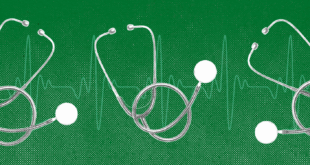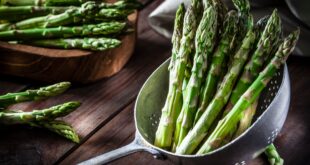A few months back, I met a buddy at the gym. Things were pretty typical up until our chat took an unexpected turn towards
The unavoidable subject of protein consumption
I mentioned that I likely don’t consume enough of it, upon which she enthusiastically showed me her lunch contained in a Tupperware box—a mixture of shredded chicken rich in proteins swimming in an enigmatic, thick, white substance. It turned out to be cottage cheese.
This doesn’t look like the most appealing lunch, but there’s a reason behind this food mix-up.
100 grams of reduced-fat cottage cheese includes
approximately 11 grams of protein, making it ideal for including in a low-calorie diet, due to its additional qualities.
Rich in nutrients, yet low in carbs.
, as well as its sugar content (particularly when compared to other cheeses). My new workout buddy isn’t the only one adding this ingredient to virtually all meals these days. Recently, cottage cheese has shed its 1970s image of being a tooth-friendly but less desirable option and has transformed itself into the go-to health food for those seeking benefits ranging from weight reduction to increased muscle mass.
On the web, numerous influencers post countless cottage cheese-inspired dishes. One recipe advises mixing it into a smoothie along with some extra protein powder as an energizing morning meal. Others recommend topping a piece of sourdough bread with mashed avocado and a layer of cottage cheese for a satisfying midday bite. If you’re daring enough, consider shaping cottage cheese into a pizza crust and baking it until golden; then garnish it with your favorite toppings. As for something sweet after dinner, why not experiment with a delectable combination of cottage cheese and Reese’s lava brownies, reportedly packing a hefty 15 grams of protein per serving?
Our present fascination with cottage cheese stems from an increasing preoccupation with wellness culture, which has made protein a priority for all. Keeping track of one’s protein consumption is no longer solely the domain of fitness enthusiasts aiming to build muscle; individuals engaging with health-related material understand that adhering to a high-protein, low-carb regimen is key to achieving optimal well-being (not forgetting the daily supplement routine and commitment to intense Pilates sessions). Consequently, those striving toward this unattainable benchmark of contemporary wellness recognize that incorporating cottage cheese into their diets can be transformative.
Crafted from semi-skimmed milk curds, this item experienced a significant boost in sales, climbing by 40 percent in the past year. Numerous companies have noted an increase in customer interest. For instance, Scottish company Graham’s Family Dairy disclosed that their cottage cheese sales increased by over one-third within a span of 14 months. Additionally, Marks & Spencer mentioned that the sale of thick-textured versions rose by 30 percent, as stated by them.
The Guardian
This has also contributed to a gap in the dairy section lately, as well.
supermarkets in Australia
reporting cottage cheese shortages.
Scott Baptie, who is both a dietitian and the maker of
high-protein recipes
He describes cottage cheese as “quite a treasure” regarding meeting health objectives. He notes, “Its rise in popularity is well-deserved.” According to him, it boasts substantial levels of protein—especially slow-release casein—which aids in keeping you full longer and assists with both building muscles and losing fat. Additionally, cottage cheese includes vital nutrients like calcium, vitamin B12, and magnesium, promoting strong bones and enhancing cognitive performance.
Baptie has personally designed this.
cottage cheese pancake recipe
This option includes 33 grams of protein per serving and appears quite appetizing. He mentions that the cottage cheese can be transformed into “a light and fluffy texture,” similar to a soufflé, particularly when freshly cooked. It can then be enhanced with blueberries and lemon zest for a high-protein morning meal. Baptie believes that using cottage cheese in innovative and sometimes unconventional dishes makes protein intake both enjoyable and easy. As he puts it, what was once exclusive to bodybuilders has become suitable for casual dinners as well.
Several significant advantages come from consuming cottage cheese, particularly for your digestive system. Dr. Ash Kapoor, a specialist in aging and nutrition, works as a longevity physician at the
Levitas Clinic
indicates that cottage cheese items frequently include probiotics and live bacterial cultures, which
are beneficial for maintaining gut health
Elements containing probiotics are extremely beneficial for your gut microbiota—the gut serves as your main immune system, with 70 percent of your immunity located in your small intestine,” he explains. “Therefore, safeguarding this part can help maintain a healthy gut overall.
The popularity of cottage cheese reflects a larger trend toward consuming protein-rich foods for better health. Recently, “high protein” has turned into the go-to buzzwords plastered across food packages. If you step into your nearby grocery store, you’ll notice shelves brimming with items boasting loud labels claiming they contain 20 grams of protein—like tiramisu yogurt or chocolate bars. This can easily sway consumers at first glance; however, every dietitian I consult stresses that although high-protein products have gained acclaim as symbols of good health, one should not base their entire eating habits solely on such assertive marketing claims.

“Bearing ‘high-protein’ on a label may lead individuals to believe it’s inherently healthy, however, this isn’t universally true,” explains Baptie. “Many high-protein snacks contain only marginally more protein compared to their regular counterparts and often come with elevated amounts of saturated fats, salt, or calories.” For instance, a protein cookie could boast 20 grams of protein yet still carry 400 calories along with significant quantities of sugar. “Always take time to turn over the package and review the complete nutritional information rather than solely focusing on what’s emphasized on the front,” advises Baptie.
He also notes that many of the recipe combinations he has come across online tend to be quite “unconventional.” He explains, “Just because something mixes together does not necessarily mean it should be mixed.” Additionally, he advises being cautious with additives—some supposedly healthy recipes can still include substantial amounts of sugar, highly processed components, or servings large enough to satisfy a whole rugby squad.
When you come across a honey-laden cottage cheese cake breakfast recipe on TikTok, consider being skeptical about its health benefits. As Dr. Kapoor points out, certain amino acids—the foundation of proteins—can transform into sugars within your body through a process known as gluconeogenesis. “Most amino acids have the potential to turn into sugar,” he warns, “so individuals shouldn’t assume that consuming high-protein baked goods, bars, or supplements means they’re avoiding carbs since these conversions can still occur.”
He argues that we shouldn’t assume items labeled as “high protein” necessarily come with low carbs, fats, or sugars — and he thinks producers bear significant responsibility for misleading claims on packaging. He contends that the food sector must transform itself; it ought not deceive consumers into believing protein bars benefit our health. According to him, the abundance of artificial components in these products acts like poison within your system, leaving your digestive tract puzzled about what they actually are.
Although cottage cheese has been marketed as part of a healthy lifestyle through an effective public relations effort, I can’t shake off the sense that this trend carries undertones of “toxic diet culture.” Even though we aren’t explicitly advised to consume smaller quantities, the obsession with slimness often drives us into an unending search for the ideal eating plan.
Dr. Roz Fallaize, who leads the BSc Dietetics program at the University of Hertfordshire, attributes the exaggerated claims about cottage cheese to unattainable body ideals and problematic eating behaviors. She explains, “Presenting one particular food item as a ‘magic solution’ for shedding pounds overlooks how intricate this multi-faceted problem truly is.” According to her, although cottage cheese can fit into an overall nutritious meal plan, no individual foodstuff should be viewed as a fast remedy. Instead, attention ought to remain on equilibrium, continuity, and pleasure rather than limitations or extremities.
If your goal is to increase your protein intake, this is certainly beneficial. Protein plays a crucial role in sustaining muscle mass and facilitating cellular repair, development, and operation. Baptie suggests obtaining protein from multiple origins such as eggs, dairy products, legumes, tofu, or poultry instead of focusing solely on one particular food item or depending heavily on protein supplements.
“He advises ensuring you aren’t eliminating all carbohydrates and fats just because you’re focusing more on proteins. Maintaining balance remains crucial—especially as you increase your protein consumption. If eating feels like a form of penance, you won’t maintain the diet long-term.”
The Independent stands out as the globe’s premier source of unbiased journalism, offering international news, insights, and evaluations tailored for those with independent mindsets. With an extensive reach spanning across continents, we attract a vast audience of discerning individuals who trust our perspective and dedication to fostering constructive transformation. Today, more than ever, our objective—to drive progress forward—remains crucially significant.


